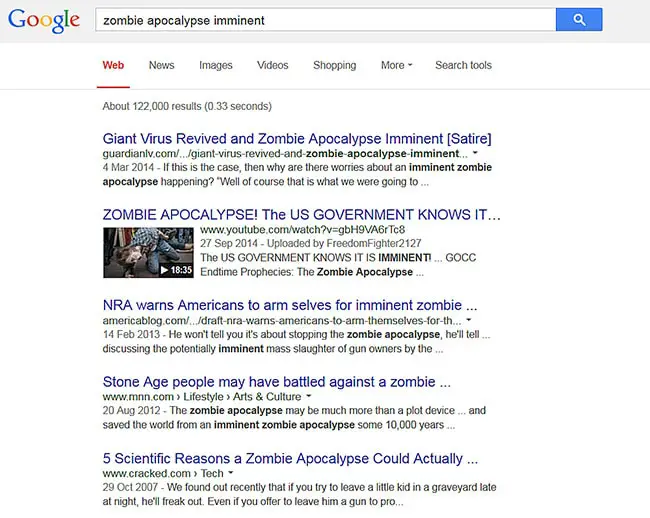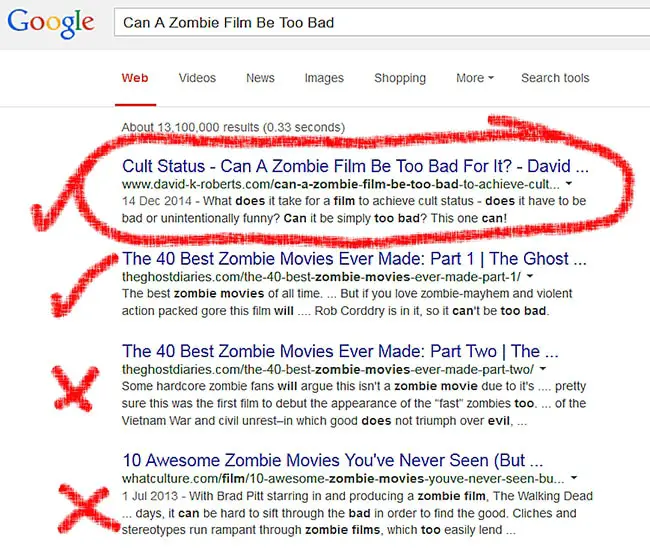This is a guest post from author David K Roberts. SEO is a tough concept for some authors, especially those with no marketing background, to understand. David breaks it down into very simple and easy to understand terms.
Hands up if you know what SEO is! If you are a self-published author then you really ought to know far more than just what it means. In this day and age we authors can only depend upon our own self-promotion and canniness. Without looking to SEO you will never get to the audience you so crave.
What is SEO?
Search Engine Optimization is the action of making your website, blogs, and every online activity you perform more visible to those that matter – your readers. When someone does a search on Google, Yahoo, or Bing to name the three predominant search engines, they type into the search criteria field the words they see as keywords for their interest. These words are like gold dust to us; by knowing them we can plan what we say in our blogs or book promotions. How do you work them out? By knowing your subject matter.
I write horror, specifically zombie horror. The keywords for me aren’t as obvious as you might think. The word ‘zombie’ of course – do that search and you will get 156,000,000 results. Using this word, will your post be on page 1, 2, or 3 – the only ones people ever look at? Probably not. Try ‘zombie apocalypse’ – only 22,300,000. What if I type in ‘zombie apocalypse imminent’? I get only 122,000 results. Much more achievable as a number in which you might just shine. The lesson – don’t go for the obvious words otherwise your work, unless your name is Mr Romero in this instance, will be lost in the noise – choose your keywords carefully.

The first image I have included shows my preferred search keyword set; I might add that these results, although they appeared on page one of the search, aren’t particularly well optimized – the description below the heading ought to be a deliberate statement describing the essay/article and should not be left to Google to extract and display random parts of the article, often leaving the searcher none the wiser as to the content (there are easy ways of fixing this).

See the first two results in the second image, they explain what the blogs are about and are not cut off, while the second two are perfect examples of what not to do.
Rather than bore you to death with explanations, let’s look at an example of SEO instead:
How to do the basics of SEO
I want to write a blog on my favorite (and genre specific) subject: armchairs – you thought I was going to say zombies, didn’t you!
So, the first thing I do is make sure the keyword ‘armchairs’ is in the title and for preference the first word: for example, “Armchairs – my kind of chair.” Then I want to mention the word armchair at least once within the first paragraph. While writing the blog, usually between 300 and 400 words, I will attempt to use the keyword approximately 4 times for every 100 words. That is the alleged optimum but it isn’t always easy without starting to make the reader wonder what’s going on. There are a few more tricks – actually a lot more – to make your blog just right.
Another simple trick is ALWAYS to add a picture to your blog and ALWAYS to fill in the ‘Alternative Text’ or ‘Alt Desc’ field. This particular field may have a different name depending on the blog platform you use. Why do this, you ask? Because Google’s indexing bots that crawl your website do not understand picture files so you have to give them a helping hand. In this example the alt description must include your keyword, ie: ‘armchair’.
SEO is Important
That all sounds pretty tedious, doesn’t it? Yes and no; in truth you should be getting excited by now at the prospect of getting your work noticed. Have you ever wondered why your blogs never make it to the big time – in the first 3 pages of a search result? This is why. Even if you regard all this as tedious this is how you will make your efforts more successful. The reality is that Google and the other search engines want the Internet to have more interesting and verifiable information, facts, and stories. Programmatic methods of achieving this were all the rage a couple of years ago but are now no longer valid – which is a good thing. While I have not given you an exhaustive list of what to do (not by a long shot) I hope I have at least whetted your appetite to realise you can get your work noticed pretty easily. No programming, just plain old English. For more information check this Google site out.
A Warning About SEO
A word of warning: there are companies that offer you, for a fixed fee, to get your work onto page one of a search. They may well succeed – but at what cost? You can be barred by Google from ever showing up in a search again if certain, what they call ‘black hat’, SEO practices are employed. Your rank will fade if you stop paying them as well – you won’t have realised it but your website will have become an SEO junkie dependent upon the SEO pusher. Just remember, your SEO and hence your rank in a google search is in your hands – as it should be.
Happy SEOing! (is that a word?)
David K Roberts has been writing since 2010 and currently has seven self-published novels. With 30 years in the IT market place, he also consults with small businesses of all types (including a couple of authors) to help them make the best of the tools available to maximize their web presence and generate real income. Why should all the big boys have all the best toys!

